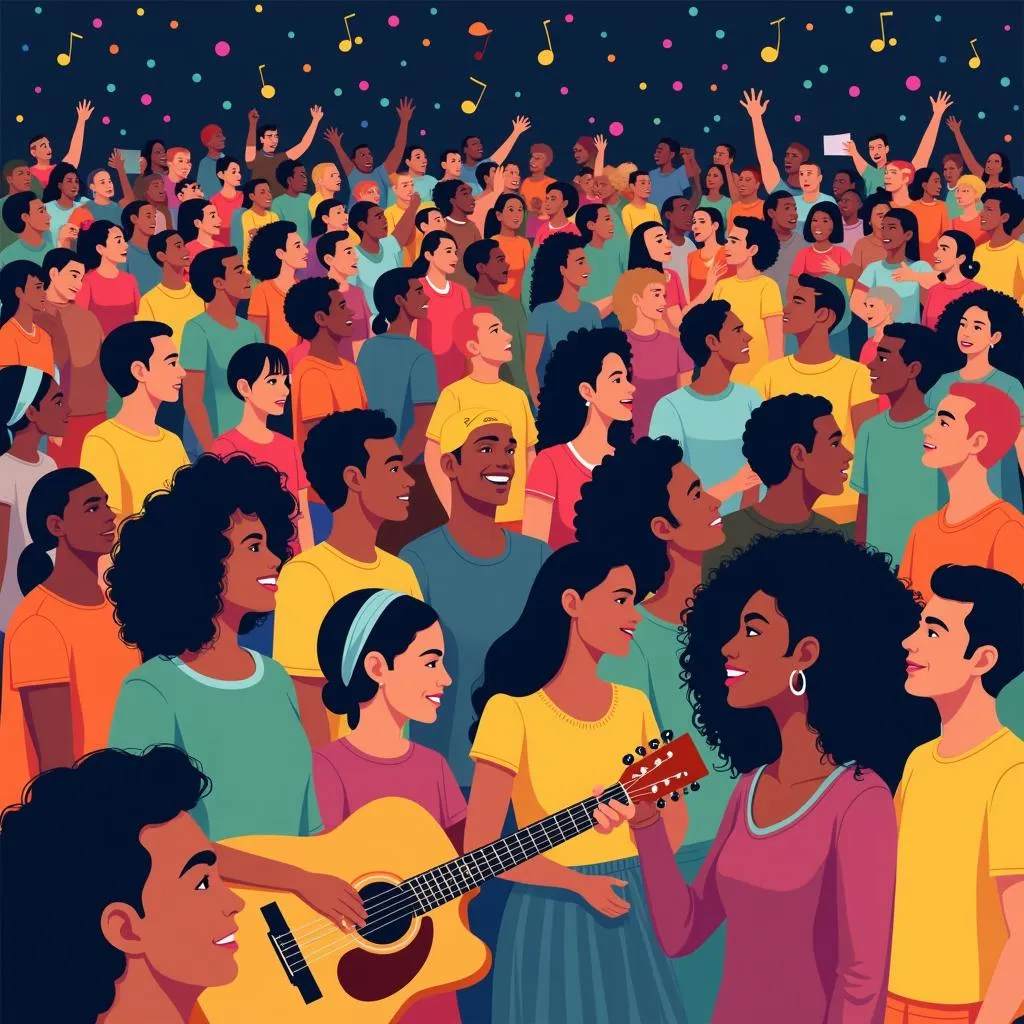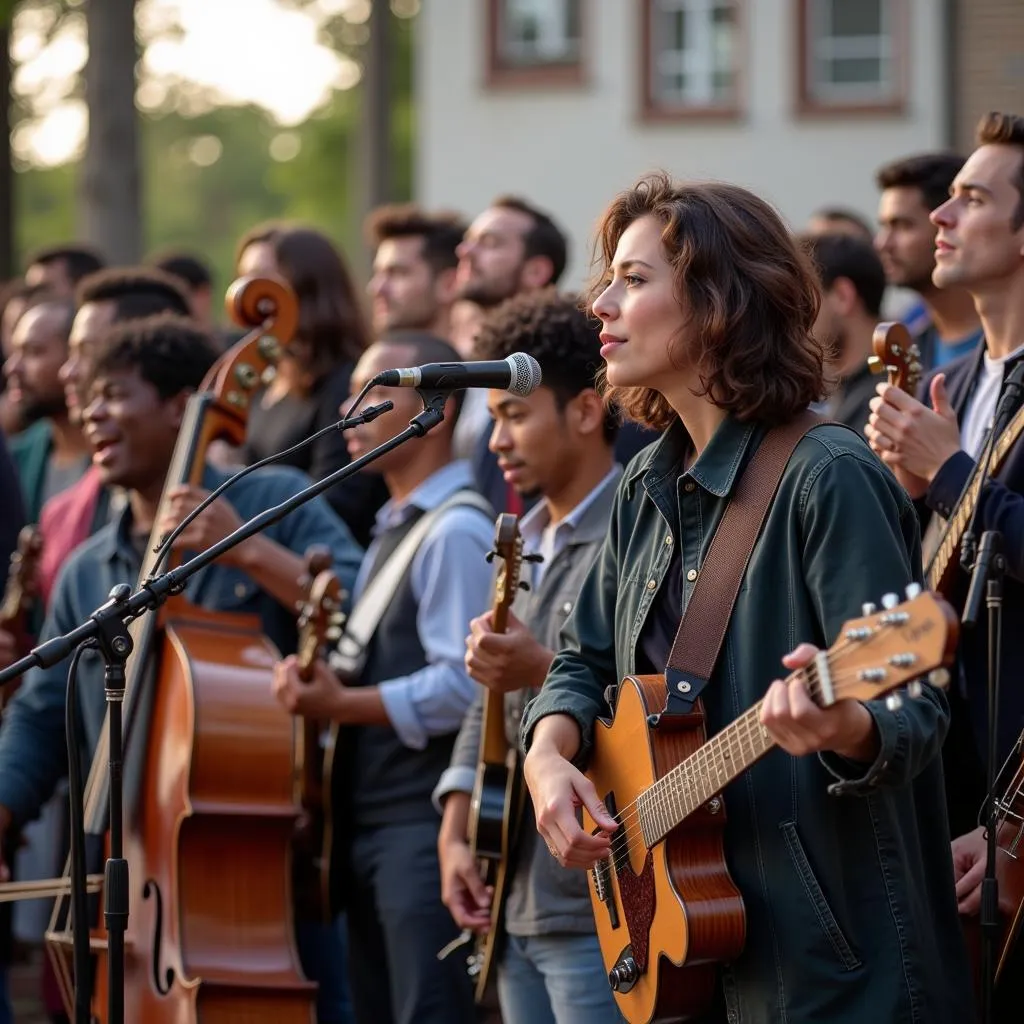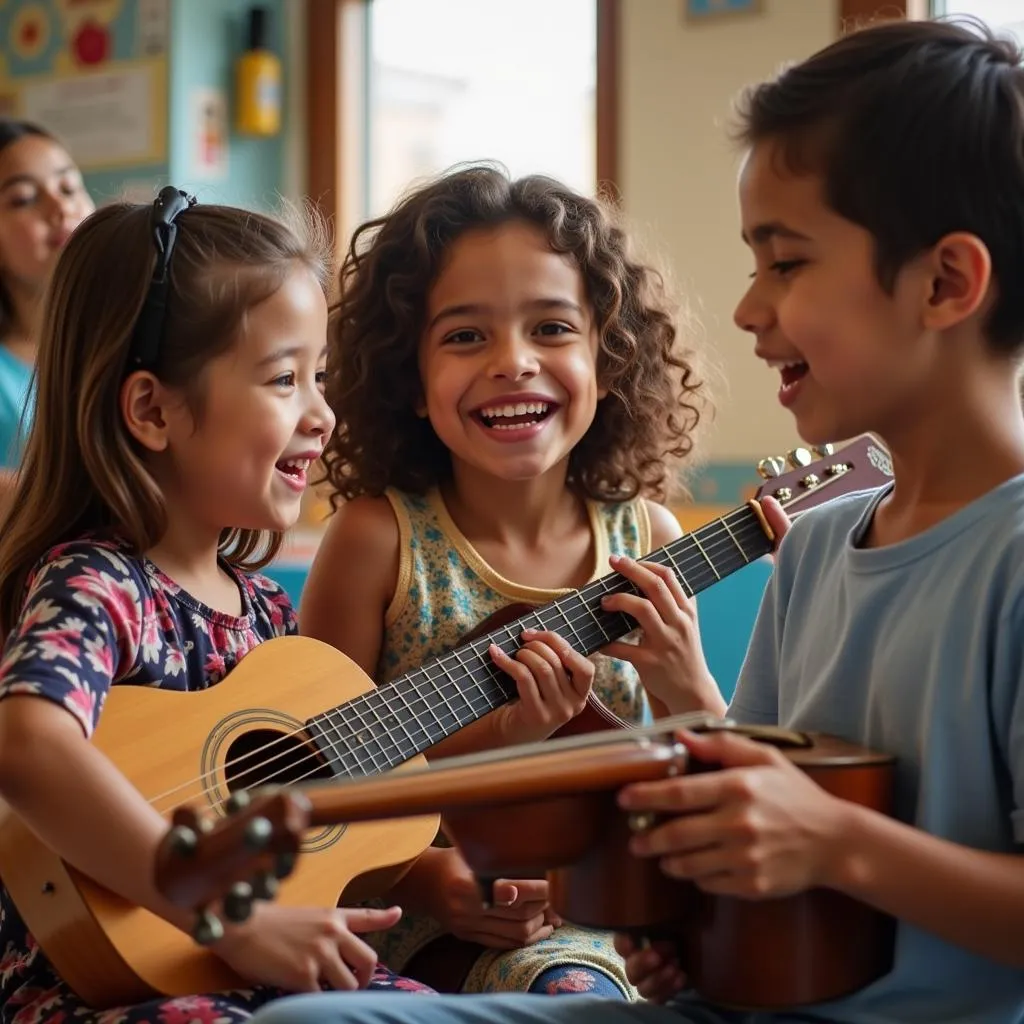Music has been an integral part of human civilization since time immemorial. From ancient rituals to modern-day concerts, music transcends cultural boundaries and connects people on a fundamental level. It possesses an unparalleled power to evoke emotions, bridge divides, and inspire positive change, making “music in society” a powerful catalyst for peace.
The Unifying Power of Music
Music possesses a unique ability to transcend linguistic and cultural barriers. Regardless of language, ethnicity, or background, the melodies and rhythms of a song can resonate deeply within us, creating a shared experience that fosters understanding and empathy.
 People from Diverse Cultures Enjoying Music
People from Diverse Cultures Enjoying Music
Think of a time when you heard a song in a language you didn’t understand but still felt a connection to its emotion. This innate ability of music to communicate across differences makes it a potent tool for fostering cross-cultural dialogue and promoting peace.
Music as a Vehicle for Social Change
Throughout history, music has played a pivotal role in movements for social justice and peace. From protest songs that gave voice to the marginalized to anthems that united nations, music has an unparalleled capacity to inspire action and galvanize communities around shared values.
 Musicians Performing at a Peace Rally
Musicians Performing at a Peace Rally
Think of iconic figures like Bob Dylan, Joan Baez, and John Lennon, whose music became synonymous with the peace movement. Their songs gave voice to the anxieties and aspirations of a generation yearning for a more just and peaceful world, proving that music can be a powerful catalyst for social change.
Music Education: Cultivating Empathy and Understanding
Integrating music education into school curricula can play a significant role in fostering a more peaceful and tolerant society. Learning about different musical traditions from around the world exposes children to diverse cultures and perspectives, broadening their horizons and nurturing empathy.
 Children from Diverse Backgrounds Playing Music Together
Children from Diverse Backgrounds Playing Music Together
Moreover, collaborative music-making, such as playing in an orchestra or singing in a choir, teaches children the importance of teamwork, cooperation, and respecting each other’s unique talents. These are essential skills for building a more peaceful and harmonious society.
Music Therapy: Healing Trauma and Promoting Reconciliation
Music therapy has emerged as an effective tool for addressing trauma, promoting healing, and fostering reconciliation in conflict zones and post-conflict societies. By providing a safe space for individuals to express themselves creatively, music therapy can help process traumatic experiences, rebuild social connections, and foster a sense of hope and resilience.
Conclusion
Music, a universal language that transcends borders and differences, possesses immense power to foster peace. By harnessing the unifying power of music, promoting music education, and utilizing music therapy, we can create a more harmonious and peaceful world. Let’s embrace music as a tool for positive change and work together to build a brighter future where understanding, empathy, and compassion prevail.
For support in promoting peace and understanding through music, please contact us:
Phone: 02043854663
Email: societyforpeace@gmail.com
Address: Khu 34, Bac Giang, 260000, Vietnam.
Our dedicated team is available 24/7 to assist you.
 using WordPress and
using WordPress and